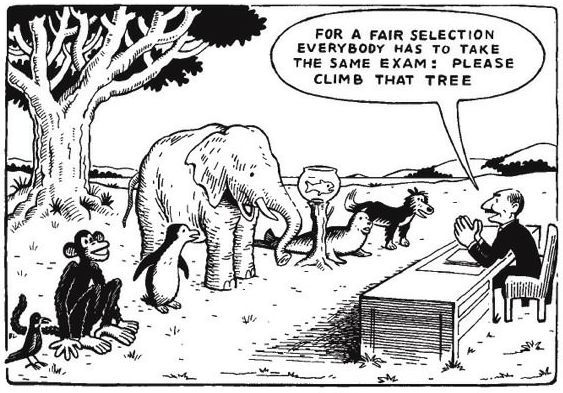Perceived threat to the community –> Innocent victim is chosen and accused of crimes related to the taboos of the community –> Victim is sacrificed –> Myth is told in order to validate the sacred violence –> Peace is restored to the community for a time –> RepeatGarret points to the obvious connection between this repeated tradition and the popular Crucifixion story. In much the same way, Christ was chosen as our scapegoat and sacrificed on the cross. Because of this, our sins have been absolved and we may carry on with our lives with a new sense of inner peace and sanctity. This theological concept is known as penal substitutionary atonement (PSA).
Although PSA remains as the dominant theological doctrine within the modern church, it is beginning to see it's share of criticism. Garret takes issue with PSA because it disguises the fact that we are responsible for the murder of a sinless being.
This myth has glorified the violence of the cross to the point that we have forgotten what lies behind it: our participation in the senseless killing of an innocent man.Not only do I agree with Garret, but I would argue that PSA is a continuation of our flawed and dangerous perception of human nature. PSA argues that violence is needed in order to preserve peace among human beings. It assumes that human beings are inherently at war with each other and will constantly be violent towards one another unless we have an external source to focus our violent energy upon.
This "scapegoat myth" is also why I have a problem with the way in which we exercise modern politics. Thomas Hobbes argued that if humans were left with complete freedom and autonomy, we would constantly fight with each other in a natural state of war. This state of war is a direct result of the combination of our unlimited self interest mixed with a scarcity of resources. Hobbes solution was to create the sovereign - the ultimate authority on the use of legitimate violence. The idea is that we subject ourselves to the laws of the sovereign in fear of its threat of violence in order to establish peace amongst ourselves.
However, I take issue with the idea of the sovereign for a number of reasons. First of all, the sovereign must rely on law, which is based on the idea of universal truths, a concept that is infinitely impossible. Although he would not have been able to even perceive the concept of nation states as we experience them today, Hobbes attempted to solve the problem of universality by drawing boundaries on the power of the sovereign. In this way, laws only need to apply to those within the sovereigns boundaries. Still, I argue that this kind of thinking only solidifies our "us and them" perception on our fellow human beings across the world. It focuses our attention on the perceived differences of each other in an exclusionary way as opposed to way of inclusion and empathy. Furthermore, I take issue with the sovereign's use (and often abuse) of violence, either threatened or actuated. When someone breaks a law, it is the responsibility of the sovereign to punish and make an example out of that individual as opposed to exploring the reasons and motivations behind that individuals crime and addressing them. In other words, the sovereign, through the use of coercion and violence, uses a "band-aid" solution in order to create short term peace - I find that dangerous, lazy, short-sighted, and only serves to promote an unhealthy perception of each other.
So what is my solution? Of course there is no easy answer to this question, although I believe it lies in a closer examination of the perception of human nature that both PSA and the model of sovereign politics builds their theories upon. That is, we believe that we are inherently competitive and self interested individuals who would rather be violent towards one another than cooperate with one another. It is fairly obvious that we make significant advances when we co-operate with each other. I could use a number of examples to prove my point; ranging from family life, to teams working on the next technological advance, to our cooperation with one another in times of extreme crises. However, I think the best example is found within the conception of human, a truly cooperative effort that has kept our species in existence for so long. In this way, we have evolved into social beings who constantly need to be connected with one another, whether that's through friendship and family, or through the social networking sites of our age. We have too much empathy built into our system to be in a constant state of war. The only way we are able to harm another human being is if we blind ourselves from their common humanity and block our empathic neurons.
My biggest problem with PSA and the sovereign model of politics is that it further perpetuates the myth that we are inherently violent creatures and that we will constantly be at war with each other. Instead, I prefer to view our violent tendencies a form of illness that have corrupted our human nature. One central thing we forget when we talk about the story of Jesus is that he is not dead. This tiny detail has huge implications when we examine his life. Jesus taught us to love one another, to recognize the common humanity within us all, and to cut out the violence towards one another. This message was so threatening to our traditional and comfortable way of thinking that we put him to death. However, Jesus resurrection demonstrated that his message cannot be extinguished even by death. Jesus took away the power of violence and coercion and replaced it with one of mutual cooperation and love.






